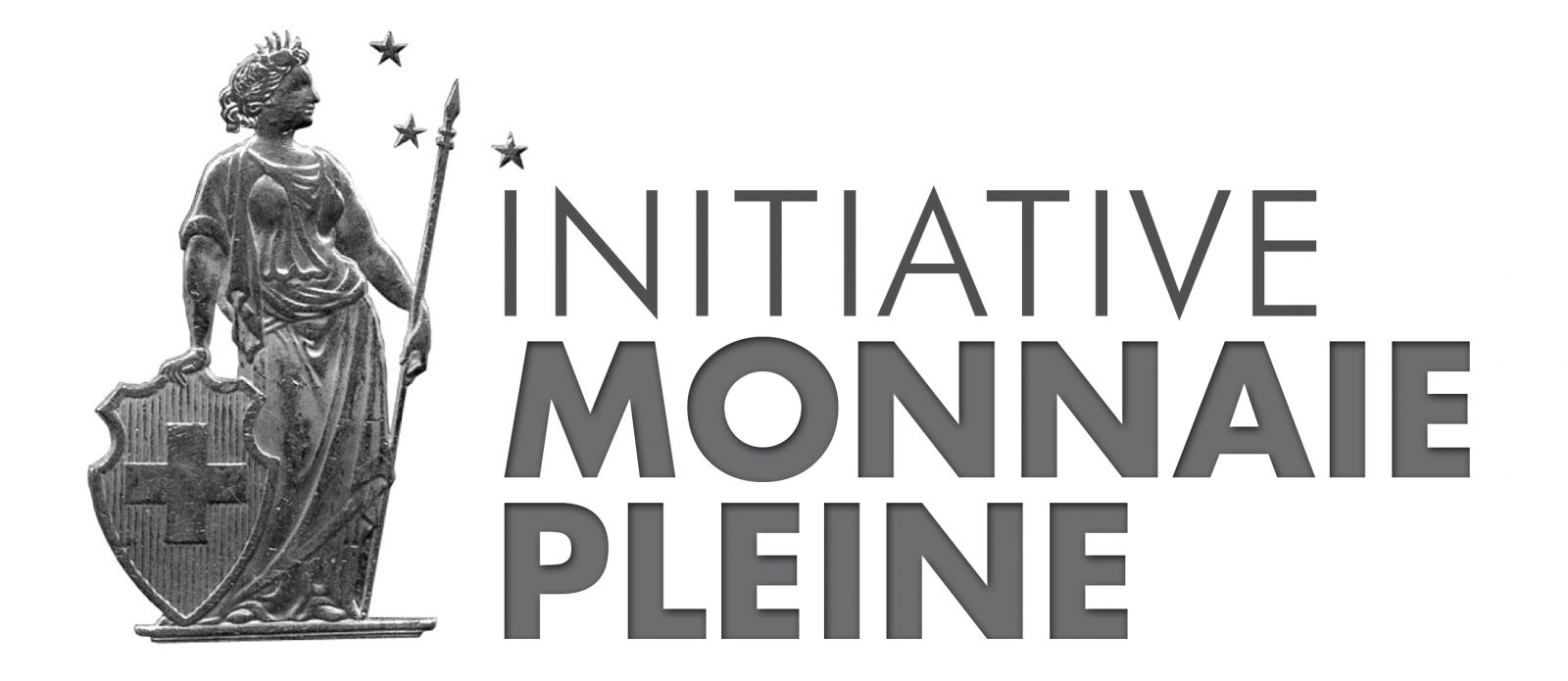Basic Income Earth Network - Switzerland
What has Sovereign Money got to do with an Unconditional Basic Income?

As you are no doubt aware, we will be voting on 10 June 2018 on the Sovereign Money Initiative "Money safe from finance crises: Only the Swiss National Bank can create money" (known as the “Vollgeld Initiative” in German and “l’Initiative Monnaie Pleine” in French). Here we present this initiative and how it links to the UBI.
Whether or not you campaigned for an Unconditional Basic Income (UBI), you've probably heard this question repeatedly: how do you pay for the UBI? There are no shortages of solutions! Here we explore how a Sovereign Money system could contribute achieve this. Before that, we explain how the current monetary system works and how a sovereign money system differs.
Do you know who creates money in Switzerland?
Did you answer the Swiss National Bank (SNB)? Congratulations! You're right – but only 10% comes from the SNB. The SNB brings coins and banknotes into circulation, and these make up about 10% of the money supply in Switzerland. The other 90%? This is created by private banks. This is the money on our bank accounts (also called book money).
This money created by private banks is not guaranteed by the state. It does not even actually belong to us – it belongs to the banks. This means that if the bank goes bankrupt, our money disappears with the bank. There is a guarantee fund of 100'000.00 CHF per depositor, but only up to 6 billion francs. This is a small amount, representing only 1.4% of assets in Switzerland...
Do you remember that UBS would have gone bankrupt in 2008 if hadn’t been bailed out by the state with taxpayers’ money...? Seeing our money disappear could happen, even in Switzerland.
What does the Sovereign Money Initiative (SMI) propose?
The Sovereign Money Initiative proposes to transform all the book money circulating in our current accounts today into real money - legal tender - created by the SNB.
The initiative also proposes that the Swiss National Bank should have the monopoly on creating money. Currently the SNB creates banknotes and coins, but after a Sovereign Money reform it would also create book money. This money will belong to us (not our banks): it will be safe because it is created and guaranteed by the SNB.
What difference does it make?
With Sovereign Money, the money in our current accounts will really be ours. It will not disappear if the bank goes bankrupt.
It will also become a legal means of payment. Today Swiss law says that book money is not a legal means of payment. It can be refused, unlike coins and notes!
Private banks will no longer be able to create money ex nihilo. Ex nihilo means from nothing. Today private banks create money that they do not have, for example when we ask for credit. We then repay the borrowed money AND interest. As a result, the bank earns a lot of money, which could otherwise be used in the real economy - the one where we live and work. With a Sovereign Money system, more money will go directly into the real economy.
What about the connection to the UBI?
There are several, apart from the fact that we are talking about money…
Equitable redistribution of wealth
The current monetary system enriches the richest and impoverishes the poorest. Sovereign Money redistributes the benefits of money creation to the whole community (to the State, to the Cantons or directly to the citizens) instead of concentrating them in the hands of the wealthiest, i. e. shareholders in banks and financial speculators who take advantage of large loans without producing anything.
The Sovereign Money Initiative will provide public authorities with additional revenues that could, for example, be used to finance a portion of the basic income. These revenues are conservatively estimated by initiators to be more or less $10 billion per year ($25 billion according to other estimates).
Acceptance of a citizen dividend
Receiving money for nothing is still considered an aberration today. However, it is accepted that banks can take ownership of a house without actually spending a penny on it. That is double standards.
With SMI, it will be possible to obtain a fairer distribution of wealth without more taxation, by directly distributing a citizens’ dividend.
A currency and an economy at the service of mankind, not the other way around
All of the electronic book money that we use today has a debt as its counterpart. Even for people who have no debt!
The money paid for wages, services or the purchase of goods always comes from a debt, if we go back up the exchange chain to the point where this money was created. There are currently no other possibilities to create money.
And this system has the particularity of destroying the money that the borrower pays back to the bank that produced it. If everyone and all organisations paid down their debts, there would simply be no more money. In order to maintain an adequate money supply for economic exchange, it is therefore necessary that someone must continually take out a new debt to compensate for the decline in the currency in circulation. Thus, society as a whole must remain in debt in order to have a means of payment. This mechanism obviously benefits the banks that issue this currency, by providing them with a permanent income and excessive power.
Moreover, the economy must always produce more, not for the real needs of society and mankind, but to pay the interest on the debt.
By dissociating monetary creation from the granting of credit, the sovereign money changes this fundamental paradigm: it then becomes possible to reduce debt without causing paralysis of the economy for lack of money. Man and society therefore have the choice, which they do not have today because of the monetary system, to have an economy that produces for their needs and not for the needs of the banking system.
Serving the common good
We believe that money, like water, is a vital good which must not be a source of exploitation taken over by private powers. The notion of public service is the very basis of sovereign money, which wants to put money creation in the hands of the community, and at the service of the community, for the community’s common good. Only an infrastructure designed in accordance with the general interest allows the private interests of all to flourish, while limiting the abuses of some.
A level playing field
Sovereign money in electronic form issued by the National Bank already exists today, but it is accessible only to banks. Moreover, they only use this central currency in their interbank relations. Why are all other economic actors and private individuals not equally entitled to this legal means of payment, which differs from coins and banknotes only in its form?
The Sovereign Money initiative represents an important step forward for all those who pursue the goal of introducing an unconditional basic income, as it defends values on which the basic income is also based.
Anne-Béatrice Duparc, BIEN-Switzerland Committee
Jean-Marc Heim, French-speaking Coordinator for the Sovereign Money Initiative
- Print node
 Email this !page
Email this !page- Login to post comments
- 18992 reads




Comments